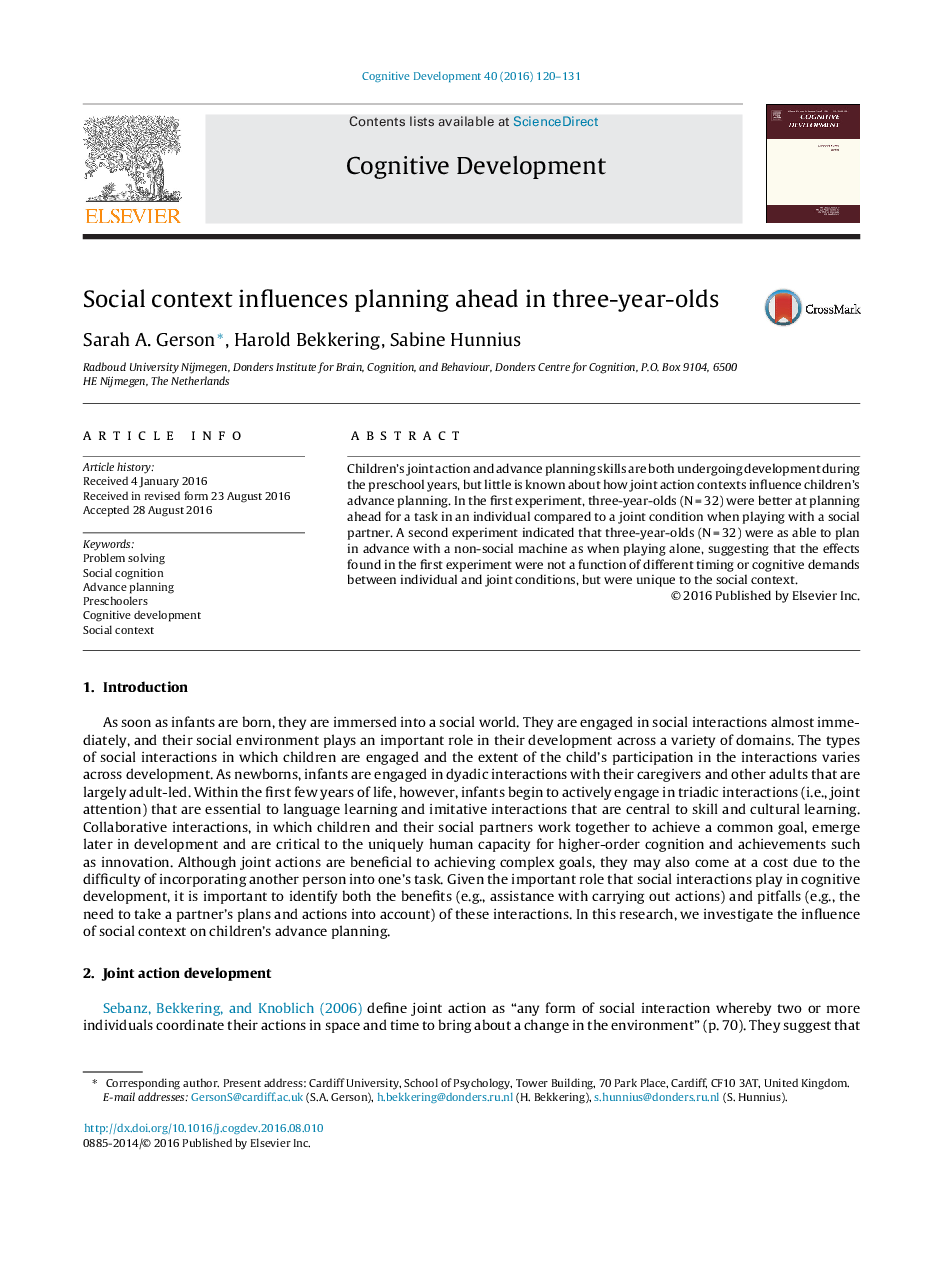| Article ID | Journal | Published Year | Pages | File Type |
|---|---|---|---|---|
| 7272352 | Cognitive Development | 2016 | 12 Pages |
Abstract
Children's joint action and advance planning skills are both undergoing development during the preschool years, but little is known about how joint action contexts influence children's advance planning. In the first experiment, three-year-olds (NÂ =Â 32) were better at planning ahead for a task in an individual compared to a joint condition when playing with a social partner. A second experiment indicated that three-year-olds (NÂ =Â 32) were as able to plan in advance with a non-social machine as when playing alone, suggesting that the effects found in the first experiment were not a function of different timing or cognitive demands between individual and joint conditions, but were unique to the social context.
Keywords
Related Topics
Social Sciences and Humanities
Psychology
Developmental and Educational Psychology
Authors
Sarah A. Gerson, Harold Bekkering, Sabine Hunnius,
